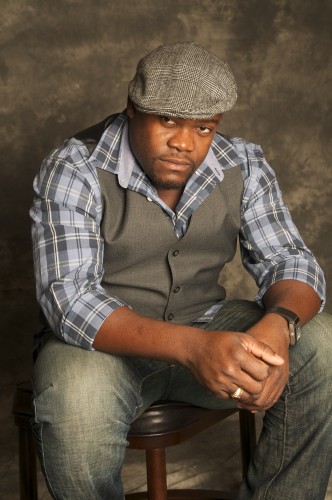Audley Chisholm Interview
Here is an
interview with Reggae guitarist Audley Chisholm done by Greg Rule from Boss.
Has some
 very insightful information on the Boss
gears he use. Read on and enjoy! very insightful information on the Boss
gears he use. Read on and enjoy!
Audley
“Chizzy” Chisholm On Tour with Maxi Priest
By Greg Rule
He’s been called an ambassador of music … a guitarist who spreads a
positive message through his music. Indeed, Audley “Chizzy” Chisholm exudes a warm, affirmative vibe, both
musically and otherwise. He’s also a rock-solid, tasteful musician who knows when to lay back and when to
stretch.
A native from Montego
Bay, Jamaica, Chizzy received formal training at SamuelsMusicSchool, all the while strengthening his soul and musical
passion at his local gospel church. In 1995, Chizzy entered the big leagues with Maxi Priest, and went on to spend
the following decade circling the globe with the reggae superstar. In between tours, Chizzy collaborated with Isaac
Hayes, Shaggy, Howard Hewitt, and Alye Woodson of the Temptations to name a few.
Today, Chizzy continues to tour with Maxi Priest. On a recent
stopover at the Hollywood Bowl, he met up with Roland and BOSS.
How did you make the transition from being a young guitarist in Jamaica to touring the world with Maxi
Priest?
AC: My big break came in ’95. That’s
when I first met Maxi. I was working in a band with two of Maxi’s cousins who told him about me, and that’s how it
all started.
You’ve done a lot of recording and touring work since then. Do you approach your gear differently
for studio and stage gigs?
AC: I pretty much use the same gear for
both, because I know where all the sounds are and how to get them quickly, so I usually take my live rig into the
studio.
What are the most essential components of your rig?
AC: For me, I always require two
Roland JC-120 amps for that huge stereo sound. For my pedal-board, right now I’m using the BOSS ME-50, but I also
used the single pedals for many years, such as the BOSS Super Chorus CH-1, Metal Zone MT-2, Noise Suppressor NS-2,
and Flanger BF-3. I always read magazines like Guitar
Player, which is how I learned about processors like the GP-16,
GP-100, and ME-50.
For your concert at the Hollywood Bowl, you used a pair of JC-120s and an ME-50. Describe how you
used that rig throughout the set.
AC: I use quite a few different sounds
throughout the show. I use a lot of delays, choruses, and distortion effects … it all depends on the song. Playing
at the Hollywood Bowl was nice: a good venue, good weather, and a good crowd.
Has your Roland and BOSS gear held up well after so many years of road
use?
AC: Oh yeah always. I’ve tried
different effects and amps, but Roland and BOSS … that’s my sound.
What advice would you give to guitarists interested in improving their reggae
chops?
AC: Reggae has many styles, as you
know, but basically reggae is not so much about being technical as it is about feel. It’s from the heart. Playing
reggae for me is fun because it makes people happy, and that makes me happy in return.
Traditional reggae requires guitarists to play steady, solid patterns for extended periods. How
did you develop such strong, consistent timekeeping skills?
AC: I grew up in reggae, and it became
a part of me. I’m accustomed to the traditional structures, but sometimes I take it outside, then I’ll bring it
back inside again. But for me, since I was born into reggae, it’s easy to just keep that pattern going. I never get
tired of doing that.
It’s like breathing.
AC: There you go. That’s
it.
For musicians who are new to reggae, what musicians and/or records do you recommend they listen
to?
AC: It all starts with Bob Marley,
Jimmy Cliff, and Toots and the Maytals. It starts there. They’re the foundation. Once you have that covered, you
have a good idea of what’s going on today, because what’s happening today in reggae is maybe a step or two up; over
the years the tempo has changed a little. But once you have the foundation covered, you’re pretty much in the
reggae vibe, you know.
When you’re not playing reggae, what styles of music do you enjoy playing the
most?
AC: I like jazz. I’ve liked it from day one, ’cause it gives me a chance to explore more as a
guitarist, to really go outside and get more technical. Paul Jackson, Jr. has been a big influence for me. I like
rock also. Joe Satriani was very influential. So I incorporate a little bit of jazz and rock into my reggae
whenever I can. It keeps things interesting.
Source: Bossus.com
| 

 Delicious
Delicious Twitter
Twitter Technorati
Technorati Stumbleupon
Stumbleupon Facebook
Facebook Digg
Digg